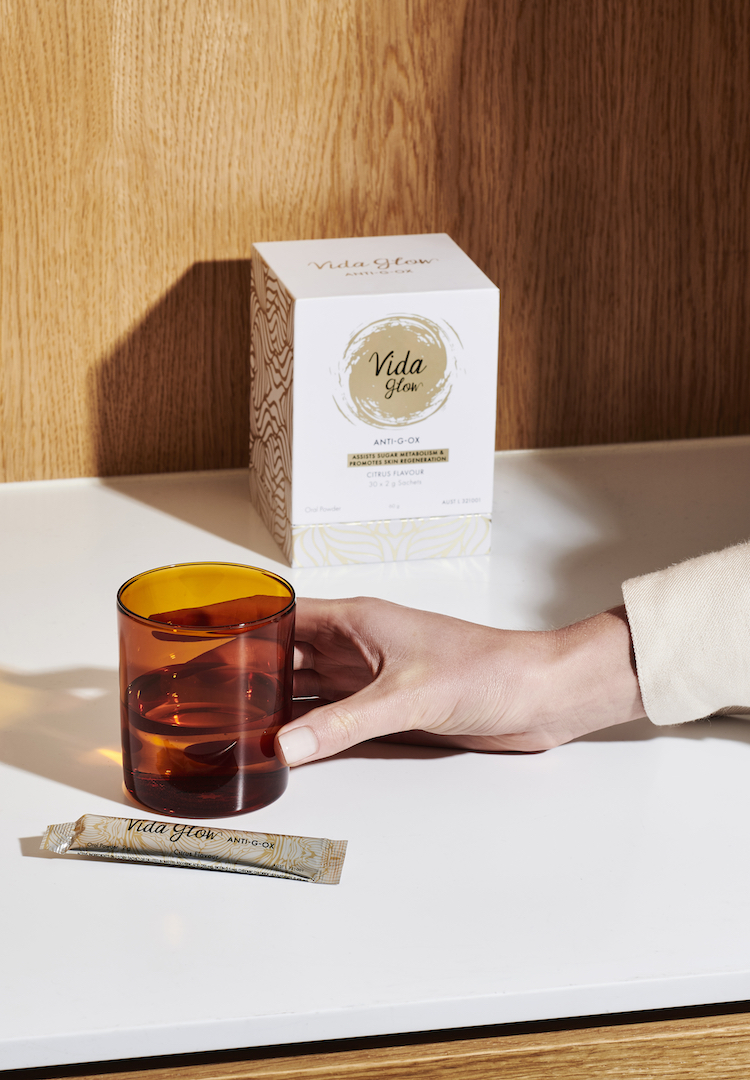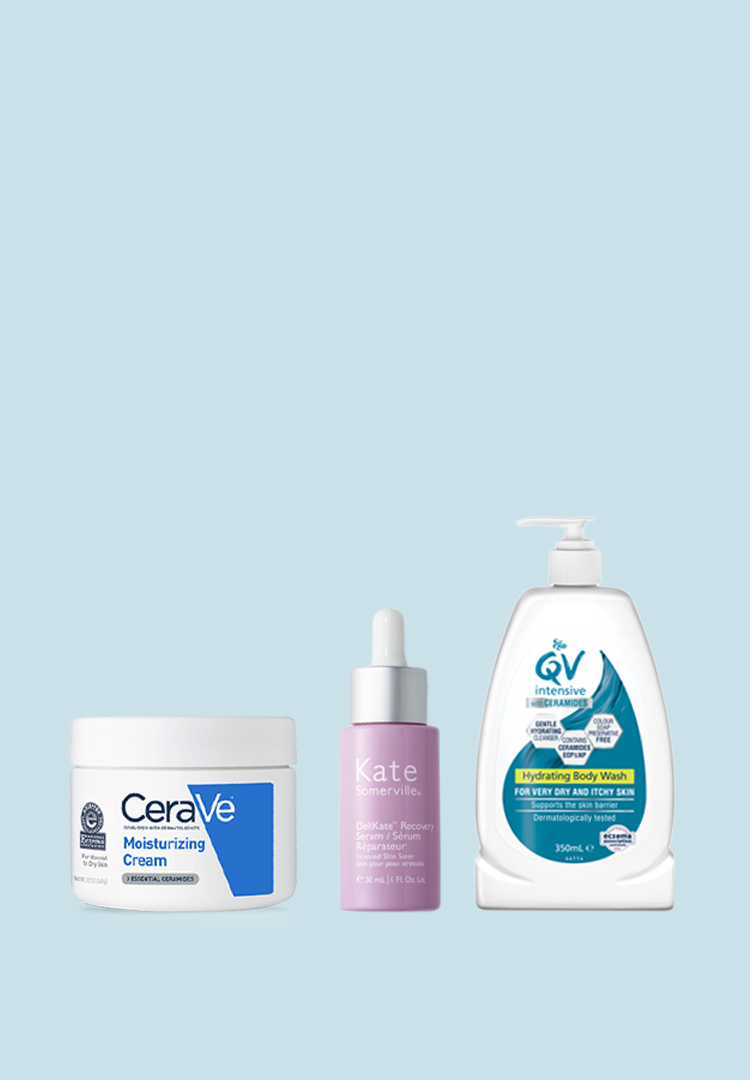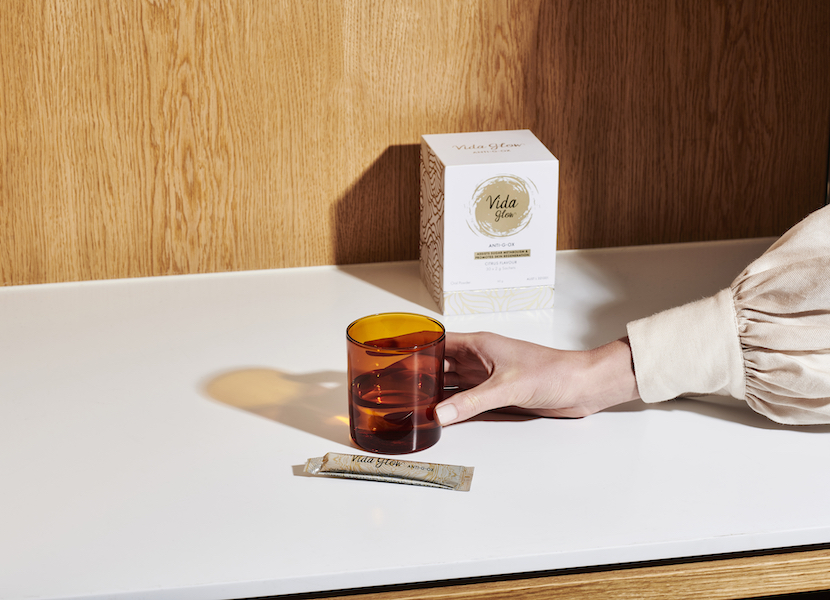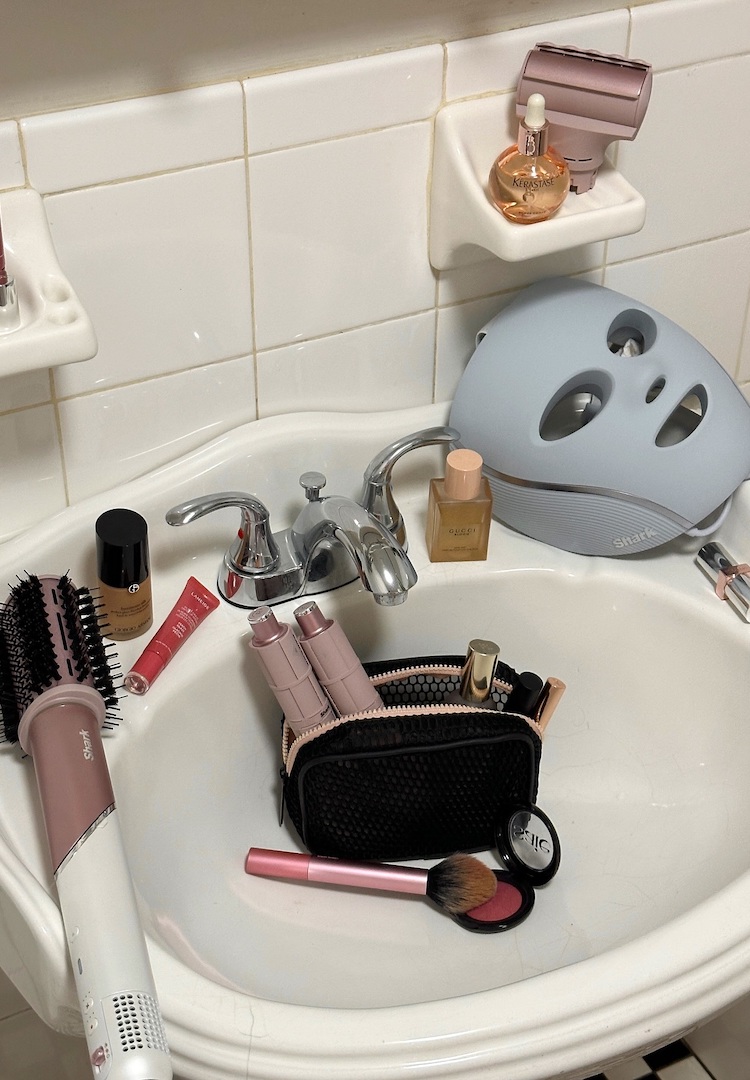Four experts explain what to be wary of when using ingestible beauty products
Words by Sally Edwards
Do these morsels of promise really live up to the hype?
Ingestible beauty is big business, there’s no denying it. En masse, we have been drawn to the promise of radiant skin with the help of a single pill or sachet of rose-coloured dust.
The market accounts for almost $125 million AUD in sales in the US alone, and inner beauty has slowly but surely become its own eponymous beauty category. The gap between ingestible and topical cosmetics has finally been bridged, but does the science back it up?
Beyond the glitzy marketing and celebrity endorsements, are ingestibles really worth the hype, or is ‘good skin starts from within’ really a much simpler notion than some brands would have us believe? I asked four experts to weigh in.
Dr Phil Tong, dermatologist and Vida Glow ‘Skin Professional’ panellist
On where ingestibles fit into wellness
“[Ingestibles are] something that I recommend for my patients that want to take their skin to the next level. But that advice goes along with general skincare: moisturising, keeping out of the sun and using topical vitamin a.
“If a patient’s hair is broken or they’re shedding or they’re complaining of dry brittle nails, that’s where I would recommend supplements such as biotin, selenium, zinc, as well as ingestible collagens.”
What should we be looking for when purchasing ingestibles?
“A reputable supplier, one that has high quality control in terms of their manufacturing processes, and evidence. Look at [a brand’s] FAQ and ask them how their [ingredients are] sourced.”
And what should we be wary of?
“Claims of ‘instant’ improvement. With all forms of skincare, it takes a very slow and considered approach.”
What are the pros of ingestibles?
“We’re now moving to an era of beauty products that don’t have to be applied to the skin and, let’s be honest, the amount of absorption you can get through the skin is pretty minimal. So, it’s important that we explore other strategies to enhance our skin health from within.”
And the cons?
“The cons are that there’s not enough science and not enough evidence and literature attached to this industry. So, as a consumer, it’s very easy to be misled or swayed by glitzy marketing and hype.”
What should we really know about ingestibles?
“There is early evidence of potential benefits of ingestible collagen products on the skin but the jury is out and that more work and more research needs to be done.”
Sarah Di Lorenzo, nutritionist
On where ingestible beauty products fit into wellness
“I’m a very big believer that skin health comes from within, so, when it comes to supplements, I look at it from a nutritional perspective. There are products that I agree with but there’s also a lot we can do with skin health that is just dietary.
“If I’m having issues with, say, eczema or dermatitis, I would look at taking a probiotic. If I had skin inflammation then I would look at taking fish oil. If I had issues with wound healing or infections around my skin, I would look at my zinc and vitamin c.
“Your skin is the largest organ on your body and it’s giving you a message and you need to read what that message is. If it’s scaly skin, if it’s inflamed skin, if it’s oily, there is a reason why that is happening.”
What should we be wary of when purchasing ingestibles?
“I would look out for things like flavours and sweeteners. Imagine if every single day you think that you’re doing the right thing by your body – you’ve got a really great diet and you’re taking your ‘hair skin and nails’ supplements – but you don’t realise that every single day you’re [ingesting] artificial sweetener.
“Practitioner-only collagen is pure collagen peptides. With that I’m not going to get bloated, I’m not going to get flatulent, I’m not going to get a headache. My biggest advice is to read the ingredient panel, understand the ingredients – if you don’t, then ask the pharmacist – and avoid anything artificial.”
What are their pros and cons?
“The con with over-the-counter stuff is that you haven’t really got a lot of information. My concern is quality and how it’s regulated. Some are great but I think that it’s short-term, it’s not right to actually be living on these supplements. You need to get to the core of what’s going on with your health and address that.”
And the first step?
“People think [taking supplements is] easy and cheap, but it’s the long-term effects. If you’ve got a problem that’s bothering you enough make the effort, spend the time and go and see someone. If you self-medicate you could be overlooking a deficiency that you have.”
Carla Oates, The Beauty Chef founder
On where ingestible beauty products fit into wellness
“It’s very individual in terms of what supplements people need to take. It’s about diet and lifestyle, and [ingestibles] play the role of supplementing daily routines with nutritious, bioavailable and supercharged food and nutrients.”
What should we look out for when purchasing them?
“It’s about asking companies about where their products are sourced, making sure their powders haven’t got lots of filler in them. And in terms of supplements – synthetic nutrients – going with reputable companies that established naturopaths and nutritionists trust and recommend.”
What are the pros and cons of ingestibles?
“It depends on the brand and on the person. It’s hard to generalise, but I think it’s very important to do your research on [a brand’s] philosophy, its ethos around how and where it sources and processes its ingredients, and whether its philosophy resonates with you.”
And the first step?
“Focus on having a really healthy, balanced diet. You want to eat lots of fibre, you want to have your clean proteins and healthy fats and stay away from processed foods. Get your gut health balanced because that’s where you’re going to be processing your nutrients, and making nutrients as well. Then, look at your lifestyle, what you’re lacking and what you need as an individual.”
Angela Smith, naturopath
What should we look out for when purchasing ingestibles?
“The thing to be wary of is false or misleading claims. It’s often not that the ingredients are bad, it’s is there is evidence behind what they say the ingredient can do? They might just be a prebiotic and then all of a sudden a prebiotic is great for your wrinkles. You need to look at specific evidence.”
“Marine peptides, especially, is the collagen for wrinkles and plumping up skin, joints, hair and nails. It’s the best beauty collagen by far. It’s highly absorbable and sustainable.”
How can we best maximise their effects on our skin?
“Compliance is everything, and consistency.”
What are the pros and cons of ingestibles?
“A pro is that they’re easy, but are you getting bang for buck? You can produce supplements and make fancy claims but [are they] really going to deliver the result you’re after? That’s where it’s good to do your research.”
And what should we really know about ingestibles?
“The younger you start the better. Looking beautiful, aging well – [it’s] not just about beauty, it’s that you’re internally healthy. If you’re doing something beneficial for your skin internally, you’re doing something beneficial for the largest organ of your body, and one that you can see.
“Plus, it helps counteract some of the naughty things that we like to do, like having a coffee, living in the city, having a glass of wine with our girlfriends. It’s all about living and sometimes you’ve got to balance that out a little bit.”













